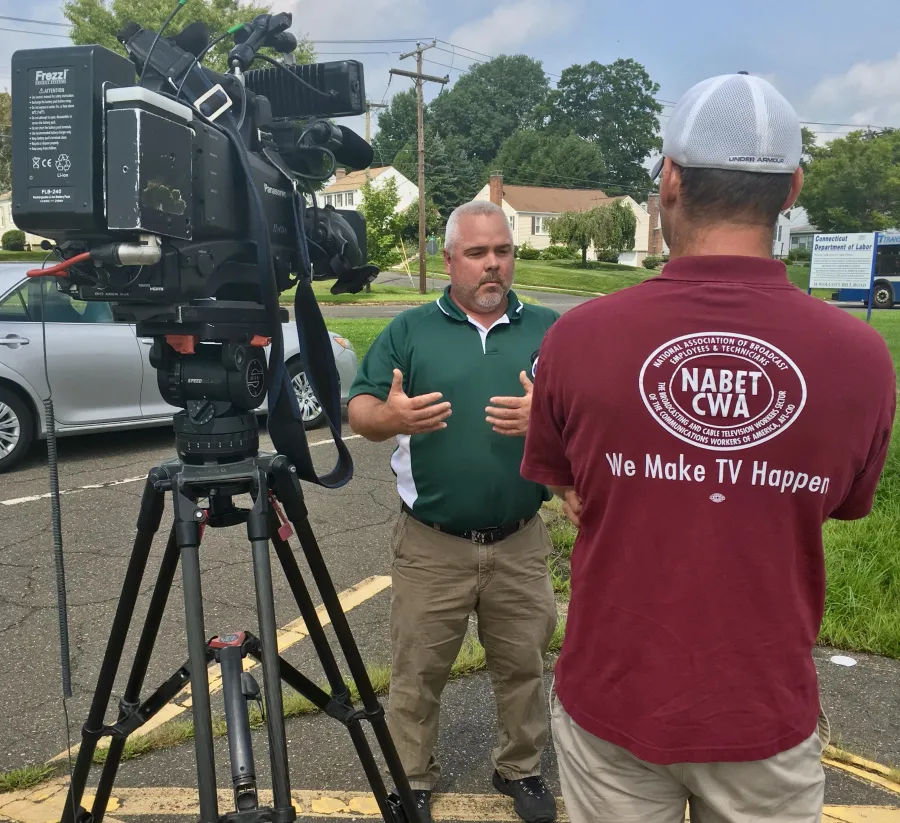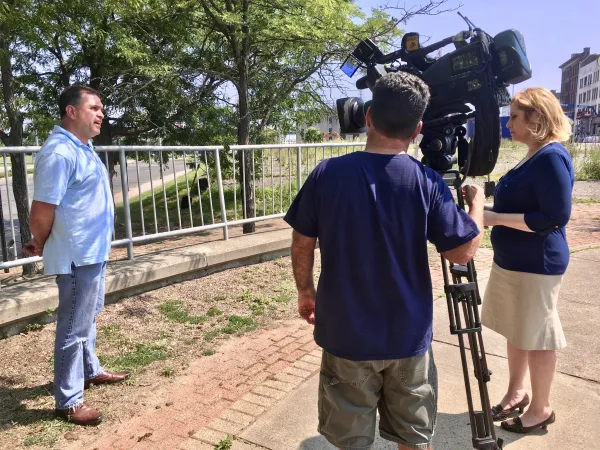Juvenile Detention Officers Condemn Understaffing, High Injury Rates

The union representing front-line employees at state Juvenile Detention Centers in Hartford and Bridgeport is calling on the Judicial Branch to address deteriorating working conditions at the facilities that endanger staff and residents.
“The combination of staff layoffs in 2016, combined with ‘Raise the Age,’ has left our juvenile detention facilities understaffed and our juvenile detention officers (JDOs) overworked and vulnerable to injury and burnout,” said AFSCME Local 749 President and State Supreme Court Police Officer Charles DellaRocco, whose union represents more than 1,500 workers in the Judicial Branch, Division of Criminal Justice and Public Defenders’ Office.
Click here for press coverage in the Hartford Courant and here for press coverage in the Connecticut Post.
The Judicial Branch laid off 40 juvenile detention officers in 2016 and has subsequently failed to live up to an agreement to restore staffing levels. Local 749 maintains those cutbacks have spurred the increased use of mandatory overtime to cover shifts due and resulted in a spike in workplace injuries due to physical interactions with residents, such as breaking up fights.
One such incident occurred in early July in Hartford, when an electrical fire broke out, and riot-like conditions ensued when residents attacked each other and two officers were injured.
Local 749 Vice President Ron Nelson, a Juvenile Detention Officer in Bridgeport, said that his co-workers have been mandated to work double shifts four times a week, with additional mandatory shifts on weekends.
“We are lucky if we can take bathroom breaks. Getting injured while trying to do our jobs has become the norm. This is a recipe for disaster that’s been brewing a long time,” Nelson said, noting that four of his co-workers recently were sidelined due to job-related injuries that resulted from responding to incidents.
“The situation is deplorable,” Nelson added. “Staff deserves better and so do the juvenile offenders.”
DellaRocco noted by way of example that the Bridgeport center is normally staffed with 55 JDOs, but currently there are 22 injured, leaving 33 workers to rotate through a facility that must operate 24 hours a day. Bridgeport currently has 41 juvenile offenders.
[caption align="right"]
Shift Supervisor Kristine Cormier, a 23-year veteran at the Hartford facility, said under-staffing has put additional strain on female officers, leading her union to call for the hiring of more women. “If the staff members aren’t safe, then the kids aren’t safe,” she said. “It’s a frustrating and dangerous situation.”
Local 749 and its parent union, Council 4 AFSCME, have filed numerous grievances against the Judicial Branch over staffing and safety-related issues. Council 4 also filed two State Prohibited Practice (SPP) complaints with the Labor Board against the Branch related to unilateral changes in working conditions at the juvenile detention centers. One of those complaints is scheduled for a formal hearing Aug. 8, 2018 in Hartford.
“Our juvenile detention officers are dedicated workers doing their best to maintain a safe and secure environment," DellaRocco said. “As criminal justice reform continues to evolve, the Judicial Branch must pay more attention to our concerns about safety and security or risk undermining the mission of juvenile rehabilitation.”
